June is the month we all show appreciation to the fathers in our lives who have shown us support and love over the years. In celebration of Father's Day, the Jackson Free Press honors men, many of whom are dads themselves, in the metro area who have done noteworthy things or who are active within their communities.
Craig Gill
In 1997, Craig Gill returned to the South to become the senior editor of the University Press of Mississippi. Originally from Arkansas, Gill previously worked at the Northwestern University Press, University of Chicago Press and University Press of Kentucky. The ideas of being closer to family here, his children going to Jackson Public Schools and working for a press he admired excited him.
"I knew Mississippi was an up-and-coming place," Gill tells the Jackson Free Press.
For 50 years, the University Press has published scholarly work and books that represent Mississippi and the southern region to the world, primarily focusing on African American studies and popular culture. As the only nonprofit book publisher in Mississippi, the press represents all Mississippi public universities and publishes approximately 85 books each year.
After serving as senior editor, Gill was promoted to editor-in-chief, assistant director and eventually director in 2016. As director, Gill has aimed to bring stability and technological improvements to the University Press. He also implemented a new business program, database and website for the press.
"A lot of the things that had my immediate attention were sort of the least sexy things because it was all about making sure that we had the infrastructure in place so that we could continue to grow in the future," Gill explains in an interview.
Part of that growth he attributes to his full-time staff members, many of whom started as interns or assistants.
"These are folks from Mississippi, and for the most part, people who have been able to grow into truly excellent publishing professionals," he says. "I'm very proud of the fact that we're able to maintain a press that's got a national and international reputation while really developing our local talents."
Gill and his team were looking forward to celebrating the press' 50th anniversary with multiple events, but because of the coronavirus, those events have been postponed or canceled.
UPM's current focus is on organizing virtual events with authors and promoting book sales on social media. Still, Gill hopes to celebrate the 50th anniversary through social media and through events organized alongside their local partners throughout the year. Meanwhile, Gill says he'll continue to be a workaholic and attempt to enjoy his free time with his wife. —Alyssa Bass
Justin Lofton
In high-school biology class, Justin Lofton and his classmates watched a video of a woman giving birth. To him, that event felt more like a scare tactic than sex education. He says he feels lucky to have been educated by his mother, a nurse, who supported him when he came out as queer.
"People are misinformed about what sex education is," Lofton says. "It's really just teaching them how to have safe sex if they're going to have it, but also encouraging them to abstain if they can."
The 28-year-old serves as the director of youth engagement at Teen Health Mississippi. There, he works with 10 young activists on the Mississippi Youth Council who advocate for comprehensive sex education. The council participates in advocacy training, writing bills and lobbying at the Capitol.
"Teen Health Mississippi is truly a servant organization that wants young people to lead in a collaborative partnership," he says. "Instead of telling young people what to do, they actually sit and take the time to allow young people to vocalize their perspectives and opinions and utilize those perspectives and opinions to meet them where they are to create content and programs that are relevant, sustainable and effective." The Brandon resident says he's proud of Teen Health's latest project, the COVID-19 Emergency Relief Fund. The program has received more than $15,000 to give to teenagers who have demonstrated immediate financial need because of the novel coronavirus.
Lofton currently takes online courses through George Washington University in pursuit of a master's degree in political management. He enjoys using strategies like human-centered design to craft plans for state politicians through his consulting business, Benchmark Election Strategies. His first client was Mississippi Rep. Daryl Porter Jr., for whom he helped organize campaign events, engagement strategies and a 43-page campaign plan. He strives to one day work in Washington, D.C., with a U.S. senator or president.
For now, Lofton is working on separating his work and home lives. In his free time, he writes for TheBody, which is an HIV/AIDS online resource, reads self-help books, and watches Netflix and chills with his partner.
"That doesn't always include sex," he says, laughing. —Alyssa Bass
Micah Everson
For Micah Everson, Jackson is a big city. Raised in a small town near Helena, Mont., Everson decided as a high-school freshman that he wanted to major in Latin, which certainly narrowed down his college options. "I only applied to three schools," Everson said. "I ended up at the University of Montana, majoring in history and the classics."
Everson discovered that the traditional pathway to the classroom via his college's education program would prolong his undergraduate degree by a year and a half. He decided to take an alternate route instead and enlist with Teach for America in 2010.
"That year, there was a big push for teachers to go to Mississippi or to Arkansas. I really wanted to teach Latin, but I didn't think it would be possible my first year," Everson said of his cross-country move.
Luckily, Murrah High School was looking for a Latin teacher, and the recent college graduate accepted the post. He has been at Murrah ever since, coaching the school's debate team in addition to teaching two to three levels of Latin coursework.
"In other parts of the country, a debate team is just as expected as a football or basketball team," he noted, citing the importance of the debate world.
Even amid the current COVID-19 crisis, Everson's team has spent many hours on Zoom preparing for their national tournament, which will be held virtually this year, by scrimmaging with schools representing other states. His team specializes in the debate event known as world schools debate.
Everson praised his team's dedication and achievements. "I'm really proud of the effort these students have put in, especially my seniors. Maybe it's because it's my 10th year, but this really has been a special group to work with."
He lauded Murrah debate alumni for aiding with practices, saying that it was particularly satisfying for him to watch students' progress through time.
"If my students remember one thing I taught them, it would be that words matter," Everson said.
"Whether it's what we read or what we hear, the words we use and the words we take in matter." —Taylor McKay Hathorn
Jarrod Scott
Jarrod Scott remembers going to work with his dad when he was 5 years old. His father, who died in 2015, worked for an audiovisual company before starting his own business, Tech Plus AV Services.
As Scott continued to work alongside his father, he also interned at a local news station in high school.
One day during Scott's junior year, his father asked him what he would need to be able to pursue a career in videography and photography and then subsequently supplied him with a new computer and a camcorder.
"You live a moment once, but I'll let you watch it forever," Scott says, reciting his motto.
Today, Scott runs his father's business as well as his own business, Jay Scott Visuals. Scott has captured weddings and graduations, done maternity shoots, and shot promotional videos for businesses like the Metro Jackson Chamber of Commerce and Opera Mississippi. He has also worked out of state in Louisiana, Iowa, Ohio and Florida.
He says some people don't realize how much effort goes into turning interviews into the 30-second or one-minute videos that customers occasionally request.
"I've literally been in situations where we shot 10 hours worth of stuff, and it's going to be narrowed down into like five minutes or three minutes," he says. "A lot of times people don't know the other side needed to get that finished product."
Scott thanks his father for more than just being present, crediting him for instilling the importance of professionalism, communication and looking the part.
These lessons are why he continues to book new clients and work with old ones, Scott explains.
"My dad never made anything about race," Scott says. "He always said, 'You have to recognize where you live and the time in which you live.' Being black and being young, a lot of times people would easily doubt you like I don't know what I'm doing or what I'm talking about," he says. "They'll look at me and say, 'Oh this young, black bull. What does he know?' And once they see the work, they get past that." —Alyssa Bass
Steve Price
When he's not teaching college students as a professor and the director of the writing center at Mississippi College, Steve Price volunteers at the RideABILITY Therapeutic Riding Center, which uses horseback riding as therapy for children with special needs, and serves on the organization's board of directors.
"The idea is that children mostly learn how to ride horses, and through that action they develop core strength, physical strength, emotional strength. They learn how to communicate," he says. "We just try to make connections with kids who are in need for that sort of work."
The professor learned about RideABILITY in 2009 while searching for a place where his students could volunteer, and his involvement has continued over the last decade. With the center, Price walks alongside the horses while supporting riders, sometimes helping the children steer their mounts, and assists in other developmental exercises as well.
Growing up in Wisconsin, Price earned his undergraduate degree in English writing and English secondary education from the University of Wisconsin-Oshkosh in 1989. After teaching at a high school in Wisconsin for a few years, he moved to Arizona to pursue his master's degree in English literature from Arizona State, which he received in 1993. That fall, Price decided to move to Louisiana to get his doctorate in English literature with Louisiana State University.
A job opening with Mississippi College for a position as a professor brought Price to the Jackson area in 1999 to teach English literature. In 2004, he moved back north by way of Illinois, but he missed Mississippi and Jackson. So when a new opportunity arose to rejoin MC as the director of its writing center and as a professor of English writing and English secondary education, he jumped at the chance and returned in 2008.
"When I first started teaching, I thought teaching was more or less just delivering information. Over the years, I've come to realize that teaching is about forging relationships and making connections," he says. "I realize that when I work with students, that's where the learning takes place, because of those connections and those relationships."
In his free time, Price likes to bike and run, read and write, and dabble in photography. He lives in the Broadmeadow area in Jackson with his wife, Deirdre Danahar, and their dog Ethel, whom the couple describes as a stray dog that never left, showing up in their yard and choosing them as her family. —Jenna Gibson
Hunter Jones
Hunter Jones had planned to use the bachelor's degree in kinesiology he earned from Mississippi College in 2017 to become a physical therapist. Instead, the 25-year-old discovered a different way to help people with their physical needs: creating custom wheelchairs for people with disabilities.
Specifically, Jones crafts the chairs for people who either have spinal-cord injuries or who have suffered strokes, which he does through the company for whom he works, NuMotion. Since entering this career path, Jones has helped children, teenagers and grown adults alike regain a greater sense of mobility.
"They're still people, but now that they have some sort of disability, they kind of feel like they lose their humanity and lose hope," he says. "I really like being able to sit down with them and figure out what their (physical) goals are, and make a plan for them to complete those goals."
Part of his job is ascertaining what areas need improvement in each wheelchair to balance with the capabilities of its user, as well as to accommodate for physical areas that users may need assistance with.
"A lot of times they lose a lot of function with their arms or legs, and it's my job to figure out what they can use and how to maximize what they've got through a lot of different resources," he says. "We try to give them the most function and try to make it to where the insurance can cover most of it. ... It's really rewarding."
The Pontotoc, Miss., native believes that maintaining a positive attitude is crucial for being able to move forward, even when faced with circumstances we feel set us back.
"There's a plan for your life. Even if something doesn't work out or if something happens that you don't think is supposed to happen, just stay hopeful and keep moving forward. I see that in a lot of my patients' lives and in my life as well," he says. "As long as you keep a positive outlook and keep looking forward, I think God will always be able to use you in whatever situation you're in."
Jones lives in Jackson with his wife, Bethany, and their 20-month-old son, Charlie. —Jenna Gibson
Cecil Hinds
One night in 2015, head coach Cecil Hinds was expected to make a choice. The Madison Central girls and boys' soccer teams had games on the same night in Tupelo and Northwest Rankin. Hinds decided to travel to Tupelo and watch the girls secure a win.
He surprised everyone when he arrived at Northwest Rankin during the second half of the boys' game. He had taken a small plane from Tupelo to Madison, where police escorted him to Northwest Rankin. He then coached the boys to victory.
Since coming to Madison Central in 2011, he has led the boys' team to four consecutive 6A championship titles—starting from his first year at the school—and he has led the girls' team to three. Although Hinds is proud of that record, he says he is always focused on preparing his students for life after soccer. Part of his responsibility as their mentor is to encourage them to be better people.
"It's easy to do the corporate route of winning at all costs," Hinds says. "That for me is a lot more than results. It's about developing character and work ethic, and I believe that everything else will fall into place."
Hinds' coaching style is inspired by his journey as an immigrant from Trinidad and Tobago. He arrived in the U.S. to attend Belhaven University on a soccer scholarship. After realizing he had taken some things for granted in his home country and witnessing American children do the same, he began to appreciate his support system more.
Nevertheless, Hinds knows that when people look at him, they see his accomplishments. His desire to not disappoint others motivates him to work hard.
"I think a lot of people just see me on the outside as hard," he says. "I want to please more than anything else. Your hurt is my hurt, and your disappointment is my disappointment. I'll go back to the drawing board to make it right."
The coach says he generally shies away from publicity because he doesn't want to inflate what he has done. He'd rather continue to do good work for others whether or not anyone is watching. —Alyssa Bass
David Byrd
David Byrd says he sees no difference between himself and the formerly incarcerated men he works with at New Way Ministries. This was not always the case, however. "Many decades ago, I did not care to help prisoners. I thought they deserved what they got," Byrd said.
The reason for his dramatic change of heart was two-fold: his salvation and his youngest son's diagnosis of brain cancer. "Before his diagnosis, we were too busy, but he was instrumental in getting us involved," Byrd recalled.
Armed with this newfound sense of purpose, Byrd works to help participants achieve the two main goals of the program: attending Bible study and working.
Byrd believes that the role of the ministry in helping returning men, many of whom came from impoverished backgrounds, reorient back into Jackson society is pivotal for the community.
"I'm hopeful. We've seen a lot of progress. We help make them into productive citizens and put them back into a community where they thrive," he says.
Byrd's son Blythe, the impetus of his father's participation at New Way Ministries, is involved in helping the men at New Way Ministries find jobs after they complete a six-month stint in the program. Byrd was particularly proud that one of the men who found work through the program now owns a home and a car and is expecting his daughter, who now lives out of state, to come live with him.
The Jackson-area resident cautioned against seeing the accumulation of possessions as an end goal of the program, though. "There's one thing I tell them: I've never seen a hearse pulling a U-Haul trailer. There's more to this life than gathering assets," he says.
When speaking of the parts of his life that he views as most important, Byrd cited his wife, his three children and his 10-year-old granddaughter, with whom he is especially close.
"We do everything together," he says. "We go fishing. She's caught fish, turtles and a duck, but basically we do anything she wants to do."
The antics of the child he affectionately termed as "Papa's girl" led Byrd to quip that his now-grown children claim in good humor that he treats his granddaughter differently than he treated them as children, a statement that he admitted was true.
"I'm a family man," Byrd concluded. "At the end of the day, (family is) all we've got." —Taylor McKay Hathorn
Cesar Vazquez
Members of the Latino undocumented community in Jackson have been left in limbo since COVID-19 postponed their immigration hearings. Amid times like these, the role of Cesar Vazquez, a court interpreter, has become more valuable than ever as he helps the community reschedule the trials and works to prevent them from being deported if they do not meet their legal processes.
Vazquez, 34, was born in Guadalajara, Mexico, and graduated from the University of Nuevo Leon in Monterrey in 2009 where he specialized in labor law and international human rights.
The same year, Vazquez came to Jackson to work as a paralegal for the law firm Elmore & Associates where he became one of the most established interpreters for non-English speaking people in the Jackson metro.
"I help Latinos that do not have a current immigration legal status; a lot of them are waiting now for the offices of immigration to re-open so they can continue processing their cases for their legal stay," Vazquez says.
Members of this community constantly ask Vazquez to check if the U.S. Immigration and Customs Enforcement is open so that they can do whatever they need to do in that entity to ensure they can continue to legally live in the area.
"I am certain that the number of interpretations I have done since I came to Mississippi are in the thousands by now. There are times when I need to assist with five or six interpretations in one day. I try to be available even during holidays, over the phone or via teleconferences," he says.
Vazquez has helped in criminal, civil ,and family areas including court hearing, depositions, jail visitations, client interviews and medical appointments. He has provided interpretation at federal, circuit, chancery, county, justice, municipal and youth courts.
Additionally, Vazquez has his own business called SRVC Vazquez Partners in which he works with other interpreters to provide interpretation/translation services in more than 26 languages.
Most of his clients ask for interpretation services either at the office of immigration in Pearl, New Orleans or Memphis. "There are also immigrants who are detained for criminal matters," Vazquez says. "The way I help them is by assisting attorneys or prosecutors with jail visitations, communicating with their relatives, and letting them know about the case and about the process that is going to follow."
Due to social distancing, Vazquez is having more over-the-phone court hearings. "I have seen an increase in the video calls that I need to prepare for. At the beginning of the pandemic, there was a huge reduction of business. Now it is steadily picking up again," he says.
Vazquez earned a master's degree in Law Mississippi College. His plans for the future are to continue doing what he has been doing for years, and keep growing in his legal career.
"My dream is to get licensed here in the U.S. and be able to personally keep helping the people that are in need of legal representation," he says. —Mauricio J. Quijano
Chris Gray
Chris Gray and his wife, Andrea, spent weeks in Russia searching for a Bible written in the nation's primary language as a gift for their soon-to-be adopted daughter, Hannah Claire. On their third and final trip to Russia as part of the adoption process, the couple found themselves with less than 24 hours in the country, and they still had not discovered a Russian copy.
Then, while unboarding a bus, Gray's eyes met with an older Russian man near the exit. As Gray approached, the man stood, reached into his coat pocket and pressed its contents into Gray's chest. As soon as the Pearl native grasped the item, he knew what it was—a copy of the New Testament, in Russian.
Years later, after receiving an adoption grant to cover the costs of adopting his second daughter, Ava, from Poland, Gray says he knew God wanted him to use the testimonies of these experiences to promote adoption.
"In that moment, something just stirred in me," he says.
Thus, Gray founded Zacchaeus' Tree Adoption Ministry in November 2015. Through his work with the ministry, Gray speaks at churches throughout Mississippi to encourage families to consider foster care and adoption, domestically or internationally, as well as offering a support system for families who have already gone through the process, he says.
"My favorite part, outside of meeting the families at each church, is hearing the stories from families who have adopted or have done foster care, and just getting to learn more about them and their experiences," he says. "Each family has a story—my family, we have a story. I just want to try to do my part to be an advocate to help bring awareness to adoption."
Gray also teaches classes on the first and third Wednesdays of each month, from August to May, at Crossgates Baptist Church in Brandon.
The classes cover the whole realm of adoption and foster care, ranging from how to become a foster parent to how to fundraise for your adoption. Families of any church affiliation are welcome.
"Adoption has meant a lot to me and my family, and we have just enjoyed it and now want to help spread that joy to other families in the best way that we can," says Gray.
Additionally, Gray is working on getting Senate Bill 2187 passed, a bill that will help Mississippi-based adoptive families from the past, present and future be able to get their adopted child a "Certificate of Foreign Birth" without having to re-adopt their child through the chancery court in Mississippi.
To learn more about Zacchaeus' Tree Adoption Ministry, find the organization on Facebook. —Jenna Gibson, Nate Schumann

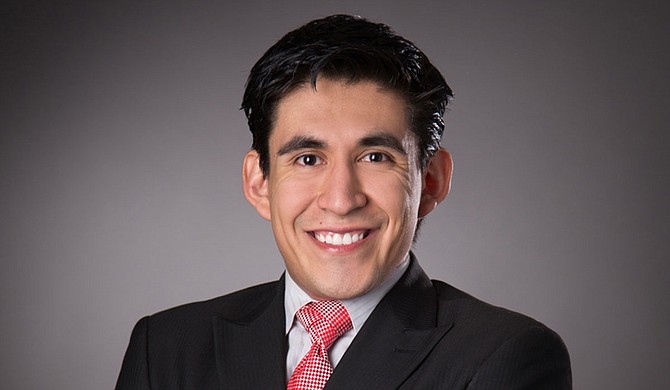
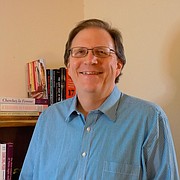

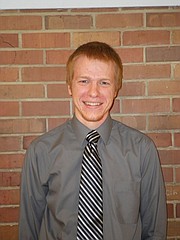

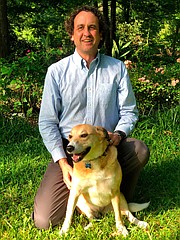
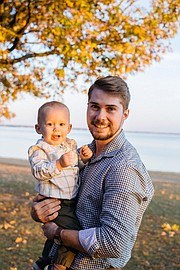
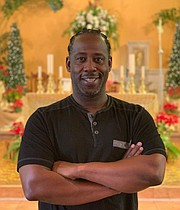
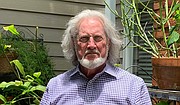
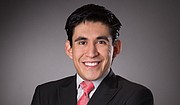
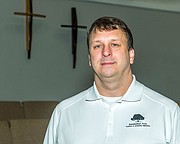

Comments
Use the comment form below to begin a discussion about this content.
comments powered by Disqus